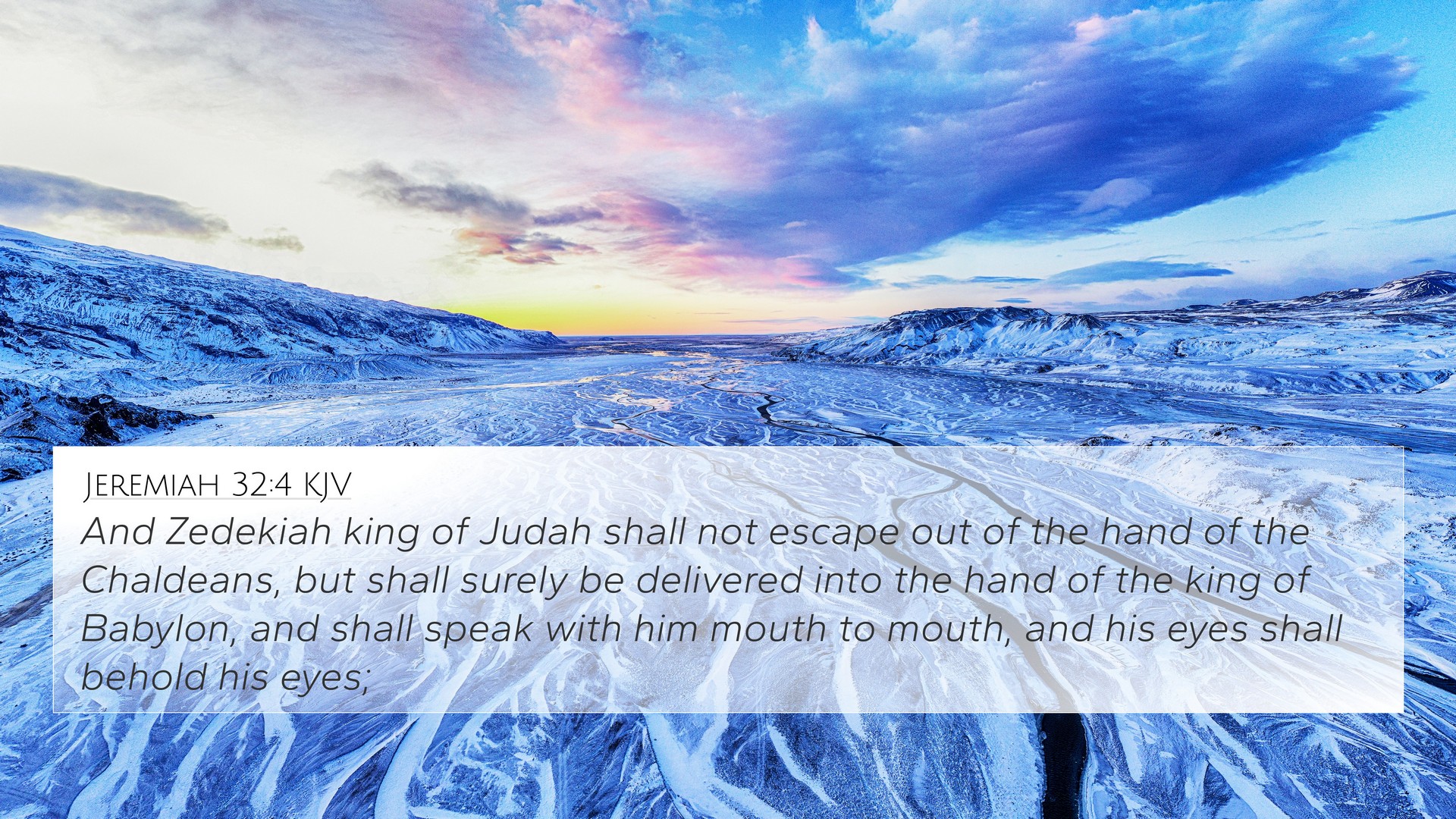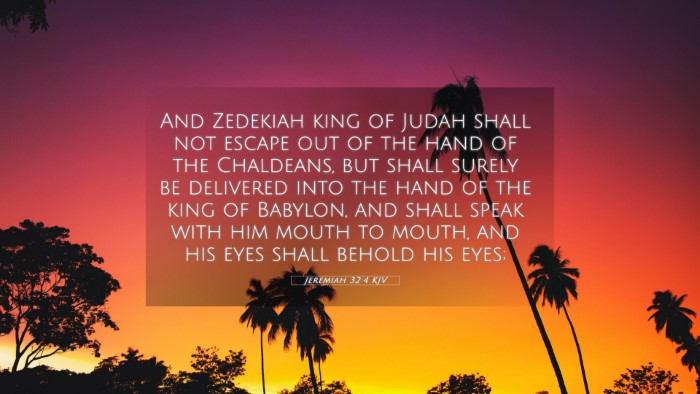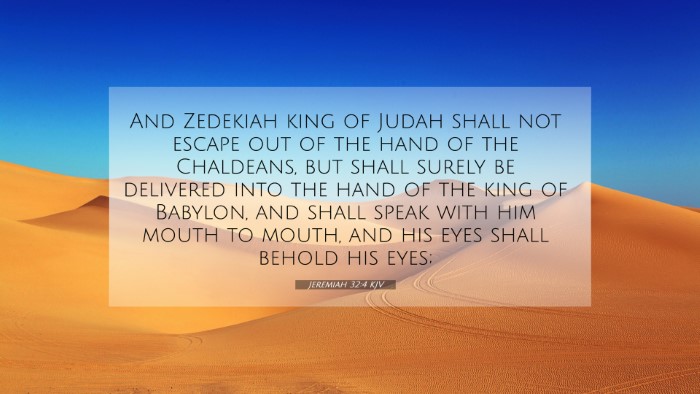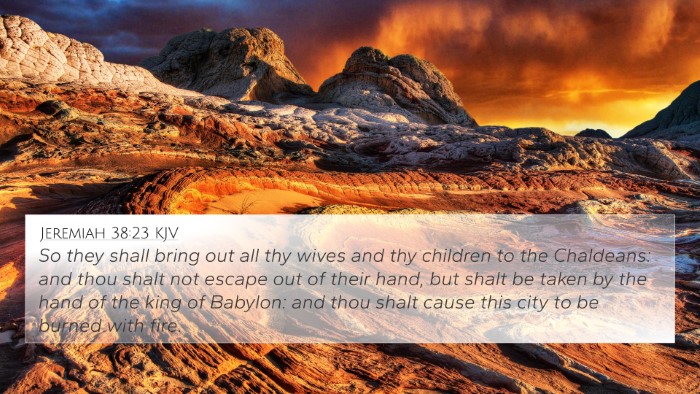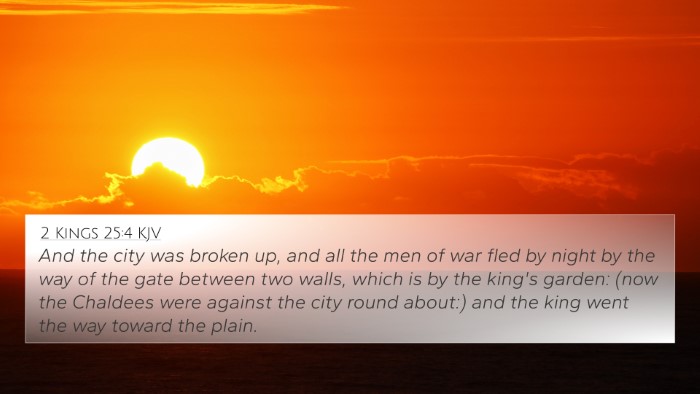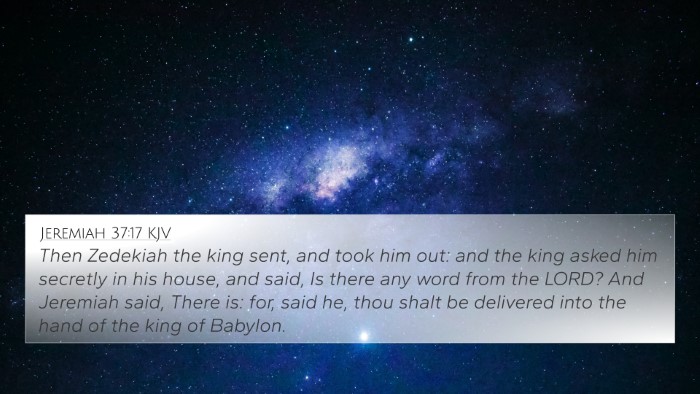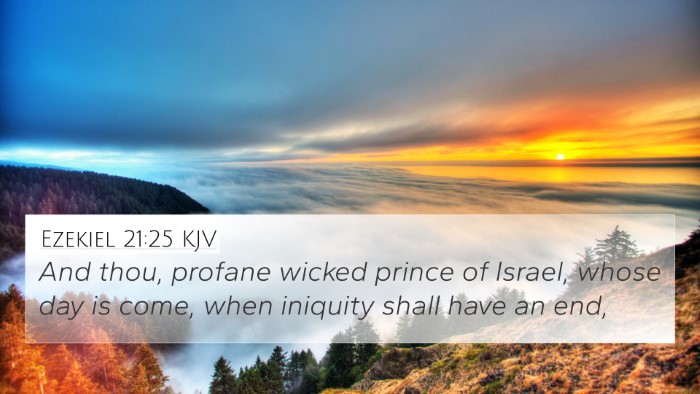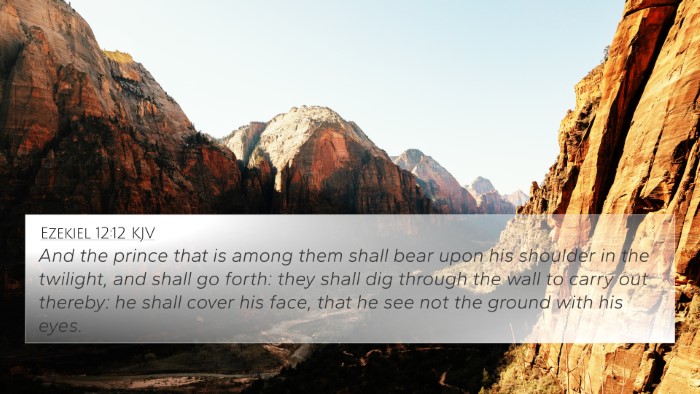Understanding Jeremiah 32:4
Jeremiah 32:4 states: "And Zedekiah king of Judah shall not escape out of the hand of the Chaldeans, but shall surely be delivered into the hand of the king of Babylon, and shall speak with him mouth to mouth, and his eyes shall behold his eyes." This verse speaks to the inevitable judgment on King Zedekiah and the fate awaiting Judah.
Meaning and Interpretation
This verse can be unpacked through various public domain commentaries to provide an in-depth understanding. Here are the key insights:
- Matthew Henry: Henry emphasizes the prophetic warning to Zedekiah and interprets it as a divine message indicating the futility of resisting the Babylonian siege. Zedekiah's failure to heed God's warnings leads him to captivity.
- Albert Barnes: Barnes suggests that the judgment upon Zedekiah signifies God's sovereignty. The phrase "speak with him mouth to mouth" indicates a personal encounter with Nebuchadnezzar, highlighting the seriousness of the situation.
- Adam Clarke: Clarke notes the historical context, asserting that Zedekiah would be led into Babylon, which symbolizes the ultimate defeat of the nation. His perspective emphasizes the consequences of disobedience to God's commands.
Cross References
This verse is connected to several other scripture passages that can provide additional insights and thematic understanding:
- 2 Kings 25:7: "And they slew the sons of Zedekiah before his eyes... and put out the eyes of Zedekiah." This verse details the outcome of Zedekiah's rebellion indicating the tragic end he faced.
- Ezekiel 12:13: "My net also will I spread upon him, and he shall be taken in my snare..." This parallels Zedekiah’s downfall with divine judgment foretold by the prophet Ezekiel.
- Jeremiah 39:6-7: These verses provide an account of the Babylonian siege and the fate that awaits Zedekiah emphasizing the horrid consequences laid out in Jeremiah 32:4.
- Daniel 1:3-4: They reflect the Babylonian captivity of the people of Judah, showing the broader context of exile that begins with Zedekiah's fall.
- Isaiah 39:6-7: These verses remind readers of the prophecy concerning Babylon's captivity, tying it to Zedekiah's actions.
- Jeremiah 27:8: "And it shall come to pass that the nation and kingdom which will not serve the same Nebuchadnezzar... shall be punished." Here, the theme of submission to God's directive leadership is discussed.
- Psalm 137:1: This psalm reflects on the captivity of Israel and their sorrow, reinforcing the emotional and spiritual consequences of disobedience.
Thematic Connections
Examining Jeremiah 32:4 through a thematic lens reveals various layers of meaning regarding judgment, divine sovereignty, and human failure:
- Judgment: The passage lays bare the reality of divine retribution that Zedekiah faces due to disobedience.
- Subordination to God’s Will: Zedekiah’s resistance symbolizes a broader theme of human pride clashing with divine authority.
- Hope and Dispair: The narrative warns of despair in the absence of obedience, while simultaneously providing a timeline for God’s ultimate redemption of Israel in future prophecies.
Analytical Insights
A comparative Bible verse analysis of Jeremiah 32:4 allows for a deeper appreciable of its context within Scripture:
- The cross-referencing biblical texts suggest a direct correlation between the personal fate of Zedekiah and the collective fate of Judah.
- Thematic Bible verse connections tie Zedekiah’s disobedience to that of previous kings, highlighting a pattern of unfaithfulness that results in national disaster.
- Bible verses that relate to Zedekiah's unyielding nature can enrich the understanding of God's patience and the ultimate necessity for accountability.
Conclusion
In summary, Jeremiah 32:4 serves as a poignant reminder of the dire consequences of disobedience to God. Through verse analysis, thematic connections, and cross-referencing biblical texts, we can see the profound implications not just for Zedekiah, but for all who choose to disregard divine instruction.
